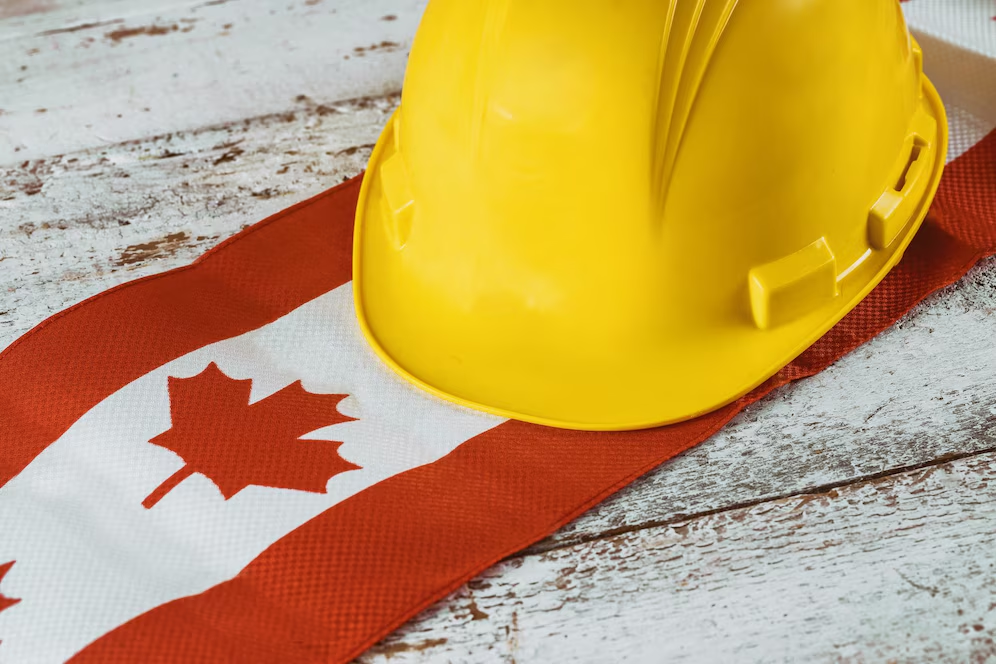
If you’re working as a contractor in Canada, insurance isn’t just an option—it’s a necessity. Contractor insurance protects you, your business, and your clients from financial losses that can arise from accidents, injuries, damages, or lawsuits. In today’s litigious and high-risk work environment, having the right insurance coverage ensures peace of mind and allows you to focus on doing your job effectively.
This comprehensive guide will walk you through everything you need to know about Contractor Insurance in Canada, from what it includes to how to choose the best policy for your specific trade and province.
What is Contractor Insurance?
Contractor insurance refers to a set of commercial insurance policies designed specifically for self-employed contractors or independent tradespeople. It helps cover the unique risks associated with construction, renovation, electrical work, plumbing, and other skilled trades.
Depending on the profession and project scope, coverage can include:
- Liability insurance
- Tools and equipment coverage
- Commercial auto insurance
- Workers’ compensation
- Errors and omissions insurance
Who Needs Contractor Insurance in Canada?
Any professional who works on a contract basis in a trade or service industry should consider contractor insurance. This includes:
- General contractors
- Electricians
- Plumbers
- HVAC technicians
- Carpenters
- Roofers
- Landscapers
- Painters
- Renovation specialists
- Construction workers
Even if you are a sole proprietor with no employees, you can still be sued or held responsible for damages or injuries on the job. Without insurance, these claims can bankrupt your business.
Types of Contractor Insurance Coverage
1. General Liability Insurance
This is the most essential type of coverage. It protects you from third-party claims for:
- Bodily injuries (e.g., a client slipping on a wet floor)
- Property damage (e.g., breaking a window while working)
- Legal defense costs
It’s typically required before you can bid on public contracts or work with larger companies.
2. Commercial Auto Insurance
If you use a vehicle for transporting tools or traveling between job sites, personal auto insurance won’t cover business-related accidents. Commercial auto insurance fills this gap.
3. Tools and Equipment Insurance
This covers damage, theft, or loss of your work tools and equipment. Given how expensive these assets can be, this coverage is a must for any hands-on contractor.
4. Professional Liability (Errors & Omissions Insurance)
If you offer consultations, designs, or recommendations as part of your services, professional liability insurance protects against claims of negligence or bad advice.
5. Workers’ Compensation Insurance
If you employ workers, you are legally required to provide workers’ compensation in most Canadian provinces. It covers medical costs and lost wages if an employee gets injured on the job.
6. Pollution Liability Insurance
Certain industries like demolition or landscaping may need this if there’s potential for environmental damage or hazardous waste involvement.
Why is Contractor Insurance Important?
Legal Compliance
Many provinces and industries require liability insurance to get licenses or permits.
Client Trust
Having insurance gives clients peace of mind and makes you look more professional and reliable.
Protection from Financial Loss
Without insurance, one accident or lawsuit could cost you thousands—or even millions—of dollars.
Business Continuity
With the right coverage, you can keep your operations going even after unexpected losses or claims.
Province-by-Province Requirements
While general principles remain consistent across Canada, some insurance requirements can vary slightly by province:
- Ontario: Contractors must have general liability and WSIB (Workplace Safety and Insurance Board) coverage if hiring workers.
- British Columbia: WorkSafeBC mandates registration for most trades and provides workers’ compensation.
- Alberta: Requires proof of liability insurance for licensing in many cities.
- Quebec: Coverage is especially important due to strict regulations under the Régie du bâtiment du Québec (RBQ).
Always check with your local authority to ensure compliance with provincial laws.
Factors That Influence Contractor Insurance Costs
Several factors affect how much you’ll pay for contractor insurance in Canada:
- Type of trade/work
- Annual revenue
- Number of employees
- Business location
- Past insurance claims
- Equipment value
- Type and amount of coverage
On average, general liability insurance costs between $450 and $1,500 annually for small contractors. A full contractor insurance package may range from $1,200 to $5,000+ per year depending on coverage.
How to Choose the Right Contractor Insurance Policy
1. Assess Your Risk Exposure
Understand your job’s risks. Do you work with dangerous tools, hazardous materials, or at high elevations?
2. Decide on Mandatory vs. Optional Coverage
General liability and workers’ comp are often mandatory. Consider adding optional policies like tool insurance or professional liability for added protection.
3. Compare Quotes
Always get quotes from multiple providers. Look for flexibility, pricing, customer service, and claim process ease.
4. Check the Insurer’s Reputation
Pick an insurer with strong financial stability and a good record for paying claims.
5. Review Deductibles and Policy Limits
Make sure deductibles and limits are realistic for your budget and potential claim scenarios.
Common Mistakes to Avoid
- Underinsuring your business – A cheaper policy may offer less coverage.
- Forgetting to include subcontractors – They might not be covered under your policy.
- Not reviewing your policy annually – Your insurance needs may grow over time.
- Assuming personal insurance covers work use – It doesn’t, especially for vehicles or home-based businesses.
How to Get Contractor Insurance in Canada
Step 1: Gather Information
Prepare your business details, such as your trade type, revenue, number of employees, and equipment inventory.
Step 2: Compare Policies Online
Use online tools to get instant quotes or consult brokers who specialize in contractor insurance.
Step 3: Read the Fine Print
Understand what is covered and what’s excluded. Look for hidden fees or clauses.
Step 4: Purchase and Stay Updated
Buy the policy and set reminders to renew or update it annually.
Conclusion
Whether you’re an independent plumber, a team of roofers, or a general contractor managing large renovation projects, having contractor insurance in Canada is not just a smart move—it’s essential. It protects you against legal liability, financial loss, and reputational damage while keeping you compliant with provincial regulations.
Before taking on your next job, make sure your business is protected with the right insurance package tailored to your needs.
If you’re ready to secure reliable and affordable contractor insurance in Canada, Insurance Genie can help you compare and find the best policy with ease.




